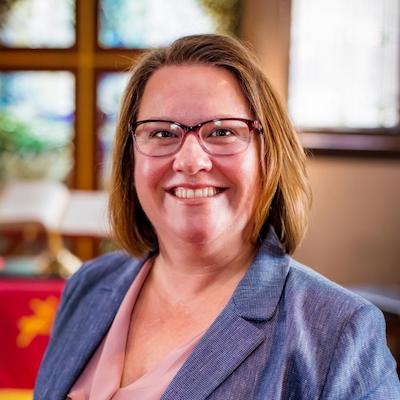 We have all heard the stories and likely have a story of our own, as Hebrews exhorts, about entertaining angels unaware. Maybe your story is one of awareness and of rising to the occasion. Mine is one of distraction, regret, and grief.
We have all heard the stories and likely have a story of our own, as Hebrews exhorts, about entertaining angels unaware. Maybe your story is one of awareness and of rising to the occasion. Mine is one of distraction, regret, and grief.
Many years ago, I was flying into the church parking lot, late for a mom’s study group. I hurriedly got my infant in the stroller, positioned my diaper bag, coffee, and purse, and had the hand of my toddler in check—all the while catching a glimpse. I glimpsed an ancient looking man driving a rickety old Honda, pulling into the lot; I didn’t recognize him. Another glimpse, I saw him struggle to open the car door while holding a container of something that looked like pencils. I was frenzied, sweating, annoyed, and in a hurry.
As I bent to release the brake on the stroller, I heard a voice. “Can I help you carry something?” It was the ancient man from the rickety Honda asking me if I needed help. Immediate remorse. Fifteen years later, tears still come when I share this story. That ancient man would later become a dear friend and a ministry partner by way of him being assigned to my youth ministry leadership team. His hospitality changed me; my own lack of hospitality changed me.
Often our notion of hospitality is reduced to gestures of church coffee hours, warm welcomes, and offering directions. It is those things, but it is also much more than those things. It is a way of receiving and offering holy presence–of the hands and feet of Jesus and the image of God variety.
It is the receiving and the sharing of love; a holy love that is rooted in grace. It is the act of sharing not only what we have but who we are. This does not come easily. How do we receive and share hospitality in a hostile world? How do we let down our guard to fully receive love and comfort from others, from God? What would that look like in our lives, feel like in our hearts to do so? How do we close doors to receiving?
How do we offer this holy presence to others? Others include not only the hungry and the naked whom we are commanded to feed and to clothe, but all. How do we make holy space for others not just physically but interiorly? What kind of space do we offer to the frustrating neighbor, to the opponent, to our loved ones? How do we invite others into our inner space of thoughts, feelings, and personhood, gifting freedom to ourselves and to them?
1John starkly reminds, those who do not love a sister or brother whom they have seen, cannot love God whom they have not seen. Only by offering holy space, holy freedom for others and self to share who they are, what they feel, and what they believe can we truly be seen and see one another.
May we welcome others to the table, offering holy space to reveal themselves without fear of judgment, of rejection, or of rebuttal. May we welcome, for ourselves, the same gifts of lavish freedom and our invitation to the feast.
About the Author
 Christen Blore, MSN, MDIV ‘18 began seminary studies after an almost two-decade career in nursing. She serves the Palmer community as Chaplain and Director of CARES. Christen is an ordained Minister of Word and Sacrament in the Presbyterian Church U.S.A. and serves at Eastern University as Adjunct Faculty in the Theology Department.
Christen Blore, MSN, MDIV ‘18 began seminary studies after an almost two-decade career in nursing. She serves the Palmer community as Chaplain and Director of CARES. Christen is an ordained Minister of Word and Sacrament in the Presbyterian Church U.S.A. and serves at Eastern University as Adjunct Faculty in the Theology Department.









